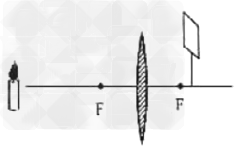阅读理解
Do you always forget where you placed your keys or your purse? What was the name of the movie
you saw last week? The major cause of your forgetfulness may be linked to what you store in your body,
not in your short-term memory bank.
Tests continue to show that people with enough Vitamin B-2 do well in memory exams. The "B"
could stand for "brain", if you're one of many with limited instant recall. And the number one source of
that vitamin is sunflower seeds.
Even when you're sleeping or relaxing, your brain is still at work. Although it makes up just two
percent of your total body weight, it uses up to 30 % of the calories you take in each day. For it to work
properly, it must be fed. Even if you're not a breakfast eater, that meal is the best way to prepare your
brain for the day. A quick and easy English muffin with peanut and butter in it, a glass of milk, and an
orange, might be what your brain may be asking you the first thing in the morning when you feel your head
is in a fog. Having sunflower seeds and fruit between meals adds more muscle to that hungry, demanding
organ. Vitamin B-1 also helps the memory, and that is found in eggs, meats and nuts. In Chinese culture,
walnuts (核桃) are known as the fruit for a long life because it is believed that they feed both the kidneys
and the brain. And accor ding to Chinese culture, if you keep those two important organs in good working order, you'll live longer.
However forgetful you are, just keep in mind the letter "B", which will help you to "bear in mind almost everything" even on those days when life's challenges are sending you in a billion directions.
1. The underlined word "muffin" in the third paragraph probably means_________.
A. menu
B. dinner
C. calorie
D. cookie
2. In the passage, Chinese culture is mentioned to____________.
A. support the idea of long life
B. show the importance of vitamin B-1
C. warn the readers of two organs
D. remind us of walnuts and sunflower seeds
3. What can we conclude from the passage?
A. What we eat seems more important than what we learn in terms of memory.
B. Two percent of our brain is still active when we are sleeping or relaxing.
C. It doesn't make much difference to our brain whether we have breakfast or not.
D. Life's challenges have no effect on our memory, if dealt with in a proper way.
4. The best title for the passage could be_______________.
A. Human of Memory Loss
B. Vitamin B-2 and Memory
C. Forgetful? But not Brain
D. Chinese Culture of Long Life

